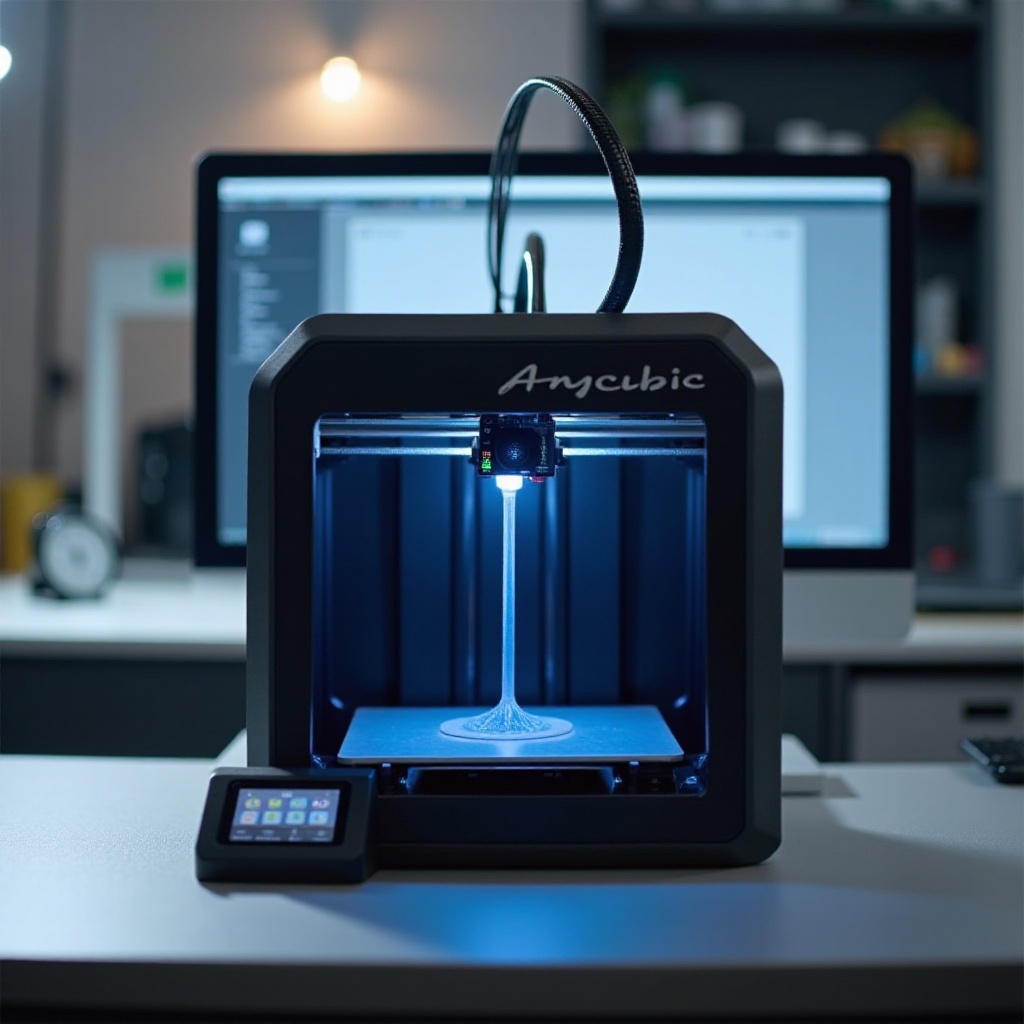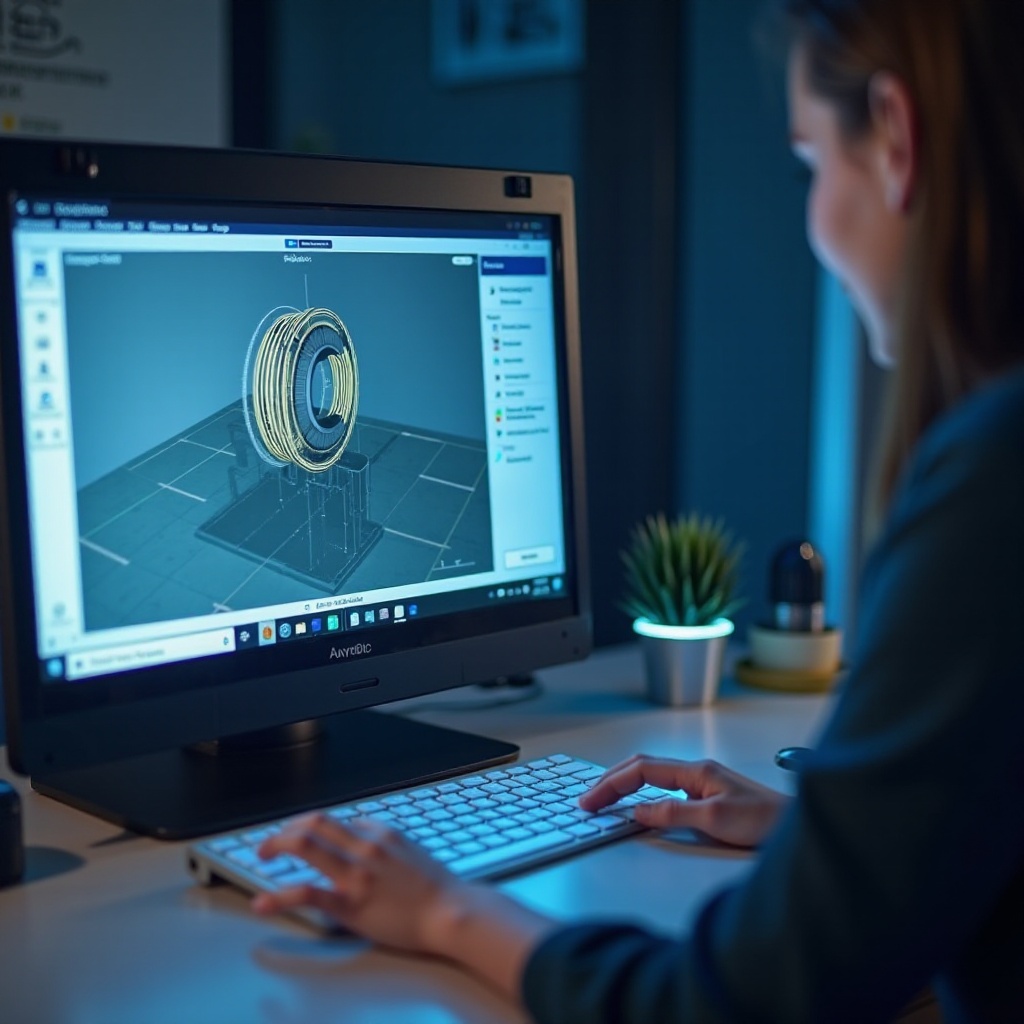Introduction
Choosing the right slicer for your Anycubic resin printer can vastly improve your 3D printing experience. The slicer you select directly impacts the quality of prints, ease of use, and overall efficiency. Whether you’re a beginner or an experienced user, the right slicer can make a significant difference. This guide will introduce some of the top slicers you can use with Anycubic resin printers, helping you determine which one suits your specific needs.

What is a Slicer?
A slicer is essential in 3D printing. It converts a 3D model into a series of thin layers, generating a G-code file your printer can understand. Simply put, a slicer translates a digital 3D model into instructions for the printer to create the object layer by layer.
These tools come with various features like automatic support structure generation, customizable layer heights, and print speed adjustments that help you control your printing process. By fine-tuning these settings, you can achieve high-quality prints tailored to your specific project requirements. With the right slicer, the complexities of 3D printing are reduced, making the process more accessible and efficient.
Top Slicers for Anycubic Resin Printers
When it comes to slicers for Anycubic resin printers, several options stand out due to their unique features, user-friendliness, and reliability. Let’s explore the top contenders:
ChiTuBox: Features, Pros, and Cons
Features:
– User-friendly interface
– Advanced support structures
– Flexible layer settings
Pros:
– Easy to use, even for beginners
– High customization options
– Regular updates and community support
Cons:
– May have occasional bugs
– Advanced features might be overwhelming for new users
Lychee Slicer: Features, Pros, and Cons
Features:
– 3D scene support and slicing
– Cloud-based print management
– Extensive pre-set profiles
Pros:
– Strong community and support
– Frequent updates with new features
– Comprehensive support options
Cons:
– Requires more processing power
– Some features are behind a paywall
PrusaSlicer: Features, Pros, and Cons
Features:
– Open-source platform
– Customizable print settings
– Integrated profiles for various printers
Pros:
– Free to use with extensive documentation
– Supports a wide range of printers
– Advanced printing options for experienced users
Cons:
– Might be too complex for beginners
– Lack of resin-specific features
Photon Workshop: Features, Pros, and Cons
Features:
– Designed specifically for Anycubic printers
– User-friendly interface
– Integrated print and build settings
Pros:
– Optimized for Anycubic printers
– Easy to learn and use
– Regular software updates
Cons:
– Limited to Anycubic printers
– Fewer advanced features compared to other slicers
Z-Suite: Features, Pros, and Cons
Features:
– Cloud-based slicing and printing
– Intuitive interface
– Supports multiple printers
Pros:
– Excellent cloud integration
– Multiple printer support
– User-friendly design
Cons:
– Subscription-based model
– Advanced features require a steep learning curve
Comparison Table: Features, Compatibility, and User Experience
| Slicer | Features | Compatibility | User Experience | ||
| ChiTuBox | Advanced support, flexible layer settings | Most resin printers | Beginner friendly | ||
| Lychee Slicer | Cloud management, 3D scene slicing | Wide range, some exclusive options | Community-supported | ||
| PrusaSlicer | Open-source, customizable settings | Multiple printers | Complex, feature-rich | ||
| Photon Workshop | Optimized for Anycubic, user-friendly | Anycubic printers | Easy learning curve | ||
| Z-Suite | Cloud-based, multi-printer support | Multi-printer | Subscription required |
How to Choose the Right Slicer for Your Needs
Selecting the best slicer involves evaluating your specific requirements and experience level. Here are some factors to consider:
- Ease of Use: If you’re new to 3D printing, a slicer with a user-friendly interface (like Photon Workshop or ChiTuBox) is ideal. They simplify complex tasks, making it easier to get started.
- Feature Requirements: Determine the features you need. If you require advanced support structures and high customization, ChiTuBox might be the way to go.
- Compatibility: Ensure the slicer supports your specific model and other printers you might use in the future.
- Community and Support: Tools like Lychee Slicer with strong community support can be very beneficial, offering user-generated profiles and troubleshooting help.
- Cost: While free options are great, sometimes premium versions offer features worth the investment, like the cloud management features of Z-Suite.
By evaluating these aspects, you can find a slicer that matches your needs, boosting your 3D printing efficiency and results.

Conclusion
Your choice of slicer for Anycubic resin printers can significantly impact your 3D printing success. By understanding the features, pros, and cons of each option, you can make an informed decision that aligns with your printing needs and experience level. Whether you opt for the beginner-friendly Photon Workshop or the feature-rich ChiTuBox, the right slicer will enhance your printing experience, ensuring high-quality outcomes and a streamlined workflow.

FAQs
What is the best slicer for beginners using Anycubic resin printers?
For beginners, Photon Workshop is highly recommended due to its user-friendly interface and optimization for Anycubic printers, making it easy to get started.
Are free slicers good for Anycubic resin printers?
Yes, free slicers like ChiTuBox and PrusaSlicer are excellent and offer a range of features that can meet both beginner and advanced needs without any cost.
What factors should I consider when choosing a slicer for Anycubic resin printers?
Consider ease of use, necessary features, compatibility with your printer, community support, and cost. Evaluating these factors will help you select the best slicer for your specific needs.
Choosing the right slicer doesn’t have to be daunting. By understanding your needs and evaluating your options, you can find the best tool to enhance your 3D printing journey. Happy printing!
Frequently Asked Questions
What is the best slicer for beginners using Anycubic resin printers?
For beginners, Photon Workshop is highly recommended due to its user-friendly interface and optimization for Anycubic printers, making it easy to get started.
Are free slicers good for Anycubic resin printers?
Yes, free slicers like ChiTuBox and PrusaSlicer are excellent and offer a range of features that can meet both beginner and advanced needs without any cost.
What factors should I consider when choosing a slicer for Anycubic resin printers?
Consider ease of use, necessary features, compatibility with your printer, community support, and cost. Evaluating these factors will help you select the best slicer for your specific needs.

